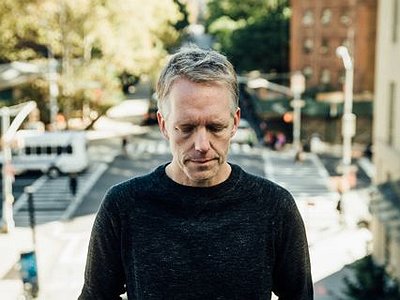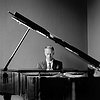Part 3
With more and more musicians creating than ever and more and more of these creations being released, what does this mean for you as an artist in terms of originality? What are some of the areas where you currently see the greatest potential for originality and who are some of the artists and communities that you find inspiring in this regard?
The ability to release anything at any given moment has two sides. On one side the freedom for prolific creators to record and distribute content is brilliant. For them, the fact that there are no gatekeepers is to their, and everyone else’s benefit. I prefer it this way, but does it oversaturate the waters? Perhaps. But, in the end, the consumer (that being the general public) has the ability to decide.
In his book ‘Creativity, The Psychology of Discovery and Invention’ Mihaly Csikszentmihalyi states “Creativity results from the intersection of a system composed of 3 elements: a culture that contains symbolic rules, a person who brings novelty into the symbolic domain, and a field of experts who recognize and validate the innovation.” Meaning it’s, as I see it, (1) up to the artist to create great content and (2) up to the general public to decide if it’s content worth their attention. It really comes down to this. There are factors which elevate certain aspects or artists, of course but, when all is said and done, if the content is unable to stand entirely on its own, the fruit (or lack thereof) will present itself and the audience will migrate elsewhere. That being said, as an artist, I am truly concerned with two simple concepts: be myself and be great at it.
With the smorgasbord at our fingertips you would think the advantage would be an inspiring one feeding ideas from artists favored and/or new. This is my personal approach, perhaps not that of other artists, but I tend to caution success access. Listening to artists of similar style can be a tad overwhelming and, as I’ve stated before, can be very influential to the point of almost losing my identity in the attempt of sounding like another artist.
That’s not to say I don’t listen to music, quite the contrary. What I listen to mostly is anything but the style I would be categorized to. I am an avid runner and find loads of inspiration when listening to random playlists of artists I’ve never even heard of. The drum pattern of a certain song may be a great part for a cellist to play or perhaps the chord progressions are ones that I would not have thought of. It’s endless if approached with an open mind. I find this is incredibly inspiring.
How would you define the term “interpretation”? How important is it for you to closely work together with the artists performing your work?
I think interpretation depends on how an artist/composer envisions the end result. Judging from my last few releases (The Chopin Variations, Bach Interpreted) I’m not a stickler for playing exactly what was written of years past.
Having a strong support group when performing with others is incredibly important. I have a European tour this September where I have added two string players. Cellist, Alistair Sung (s t a r g a z e), and violinist, Jeffrey Bruinsma (Zapp4), will join me for a few shows while two members of Iskra String Quartet will be joining me for the London date. I was fortunate enough to have Alistair Sung on a date in Italy last year for a festival, and I knew from the first note he was an excellent fit. He is incredibly skilled not only in ‘reading the ink’ but can just as effortlessly improvise over anything impromptu.
Performing with other musicians is a conversation that will mature with time. When meeting someone for the first time the conversation can be light, kind of on-the-surface and basically polite enough to not say too much or too little. But, after time you become familiar with the person and you learn preferences, perhaps abilities or what they bring to the table. And just as you wouldn’t suppress certain elements of your friends, the same is true with mutual musicians. I tend to not micromanage the musicians I work with. If I chose that route then every musician I perform with would eventually sound the same and their voice would be silenced. If you’re the only one in the room talking the entire time, how are you expected to hear someone else’s thoughts or ideas? It’s important to connect, not only with the listener, but with other creators as well.
The effect of a piece doesn't merely depend on the performance of the musicians, but also on the place it is performed at. How do you see the relationship between location and sound? In how far do you feel the current system of concert halls is still the right one for your music – or for contemporary music in general?
I love this question, it’s so important and not often asked, thank you. Personally I prefer very small venues. My music is very intimate and ‘focused listening’ with very subtle nuances. There are times when the venue is of larger size due to various necessities, but when you have a room where you can almost hear someone breathe between the notes, it’s magical. There are dates on this tour where the piano is placed in the center of the room as the audience is completely circled around the piano. I love this. I literally have people within arms reach while I’m playing. When this happens, the audience feels as if they’re actually a part of the program rather than observing from a distance. For me, it’s the ideal performance situation.
What's your view on the role and function of music as well as the (e.g. political/social/creative) tasks of composers today - and how do you try to meet these goals in your work?
For me, at this point in time, music is a catalyst to disconnect from everything around us. We have more distractions beckoning around the clock than ever before. Rarely do we take the moment to actually stop, turn off and recharge. It’s such a simple concept but one we continue to put on the list of things to do. It seems daily I receive an email stating “I’m going through a difficult time in my life. I go home, lay on the floor and listen to your music. And even if it’s for a brief spell, I tune everything out.” I had one email from a cyclist that had been run-over by a car. Writing from the hospital where he had been for 8 months, he said my music was the only thing that put him to sleep at night. At that point I began to see that it wasn’t about technique, it wasn’t about what would sell, it was about creating something so authentic and restorative that it would resonate in the lives of others. No longer entertainment but now a tool to restore the mind, body and soul.
I think the biggest goal would be staying true to the emotional aspect of music. Letting go of the notion that music has to be placed into a category where it has its own check-list. Is it fast enough? Does it sound happy? Can you hum along? Take that list and throw it in the river. That’s a recipe for mediocrity. In the words of David Gilmour (Pink Floyd), “Play what you feel, ignore everything else.”
Do you have a musical vision that you haven't been able to realise for technical or financial reasons – or an idea of what music itself could be beyond its current form?
It would be simple for me to say “yes, here are the ideas I’ve had in mind but have not been able to accomplish because of [insert some excuse here]”. I don’t look at it that way. Everything that has happened in my career has happened organically. A seed is planted, tended and then grown. And, I hope the growth is for years to come as long as I cultivate it.
For me, each project, recording or show I do is placed before me because its timing is perfect. Sure there are things that I would like to do and those things will present themselves when the timing is right. I’ve personally found that, when I rush something, the end result is less than the original thought, mostly because I tried to take control and force something before the timing was appropriate. Growth is slow, but roots dig deep for a reason and, for that, I’m patient and grateful for every step that I’ve had to take.






